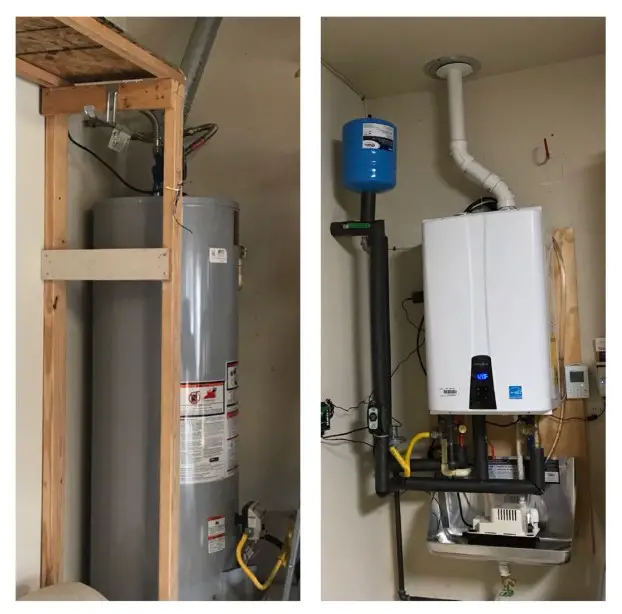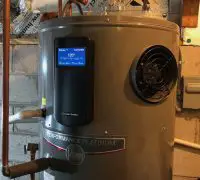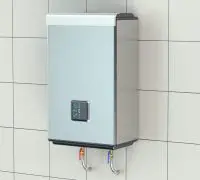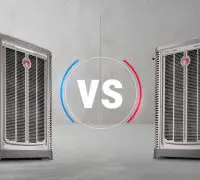If you're looking to fix or replace your Heating or A/C system, we can connect you with a reliable and cost-effective professional in your area.
When it comes to heating, the options are many, and it may be confusing for anyone not informed. Some of the most common options are indirect and tankless water heaters. To ease out your efforts when deciding, it’s better that you keep reading for a detailed comparison.
Page Table of Contents
- What’s to say about the indirect heaters briefly?
- What are the positive aspects related to water heaters?
- What are the negative aspects of indirect water heaters?
- How to describe the tankless water heaters in a few words?
- Why use tankless water heaters?
- Are there any pet peeves when using tankless water heaters?
- How does the side by side comparison look like?
What’s to say about the indirect heaters briefly?
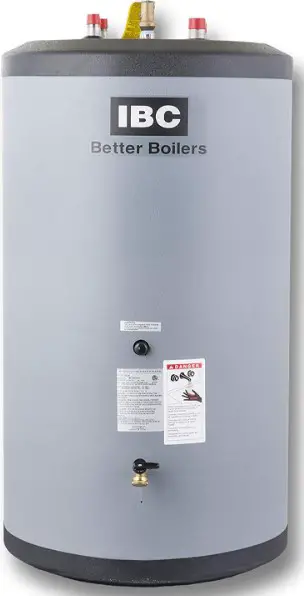
Many of you don’t know, but we’ve been using indirect water heaters since the ’70s. Indirect water heaters are linked to the boiler through piping. They obtain the indirect heating (hence, the name) from the boilers they’re connected to.
The indirect water heaters run hot water from the boiler to the heat exchanger inside the water heater. In return, the coils of the heat exchanger are going to heat the water that you can use inside your house.
An indirect water heater is going to heat water with the same heating efficiency as the boiler it’s attached to. For instance, a gas water heater can run at 60-70% efficiency, whereas the most efficient boilers can be as high as 96% efficient.
Here are the benefits of indirect water heaters:
- They perform very well
As we’ve already mentioned, the performance of an indirect water heater is linked to the boiler’s performance. With most boilers in homes being large, it’s apparent that you also have a constant supply of hot water. That’s more than any gas water heater could give. Most of the time, indirect water heaters are going to give two and even three times more hot water.
- They don’t lose much heat
Unlike regular gas water heaters, indirect water heaters don’t lose much heat when not in use. It’s because they include very efficient insulation, which maintains the water hot even in the case of long-time standby periods.
- They ensure ample hot water storage
You may store as much as 200 gallons of hot water when using an indirect water heater. It means that you’re able of high-volume flow-rate usage. It means that you get hot water every time you want to have a shower, to cook, do some laundering, or use the dishwasher.
- They are more durable
It may sound incredible, but indirect water heater can come with a lifetime tank warranty, which stands out as the most significant benefit of indirect water heaters. It’s not unbelievable though since the boilers never handle any stress or abuse like other types of water heaters. Most of the time, they’re made of stainless steel, which explains the longer lifespan. When you buy an indirect water heater, the chance for it to be the last one you buy is pretty high.
Besides, the boiler doesn’t have to run all the time for producing hot water. It only runs when you operate it for using warm water.
Therefore, if you already have a furnace or a boiler at home, it’s wise that you install an indirect water heater.
What are the negative aspects of indirect water heaters?
The most important disadvantage for the indirect water heater is that they may not work into an old house. For instance, forced air furnaces aren’t going to heat the exchange pipes.
When you don’t need much hot water, you may not want to install an indirect water heater. In this case, an on-demand system is going to be the better choice for you.
How to describe the tankless water heaters in a few words?
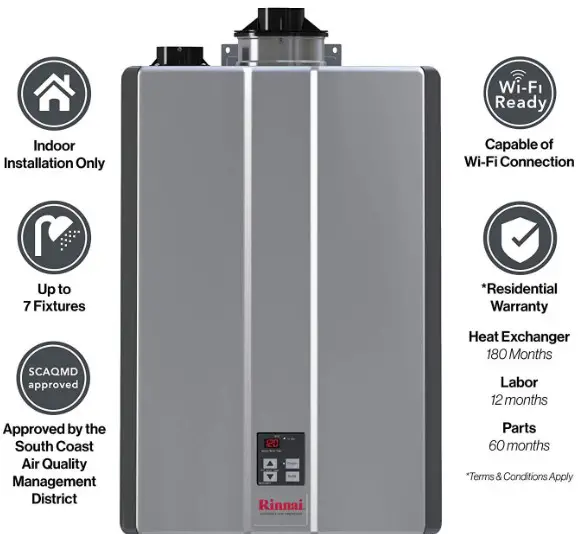
The tankless water heater is going to give you hot water whenever you need it, without using a tank (the name suggests it). Whenever you turn a hot water faucet on, the water is a heater and runs through the heating coil/heat exchanger from the boiler/central furnace.
It’s highly efficient to use a tankless water heater during the cold months when you use the heating system all the time. It’s not wise to install a tankless water heater when you live in a warm climate, though.
Why use tankless water heaters?
There are several positive aspects to consider about the tankless water heaters:
- They save money in the long run
Any home needing 41 gallons or less of hot water every day should use a tankless water heater. It can go 24% to 34% more energy-efficient than regular storage-tank water heaters. A gas tankless water heater may save you more than $100 every year, especially when you’re using it for a long time. Even electric tankless water heaters can save you $44 every year.
- They don’t need as much space as a storage-tank water heater
With tankless water heater not needing a tank for running, it’s apparent that they require less space for installation than the heaters with the tank.
- They give you hot water whenever you need it
In the case of tankless water heaters, you don’t need to wait longer than 30 seconds for the water to get warm. They’re able to produce two to three gallons of hot water per minute. Most of the storage tank water heaters need more time for heating water since the large volume of water they need to heat.
- They are long-lasting
Tankless water heaters may run for two or three decades, which is double the lifespan of a storage-tank water heater. As long as you take good care of them, you shouldn’t worry about the durability of your tankless water heater. Be aware that hard water may impact the performance of all water heaters.
Are there any pet peeves when using tankless water heaters?
The downsides may be deal breakers for some, so keep reading for getting the complete picture:
- They’re more expensive upfront
You pay $500 to $800 for a reliable storage-tank water heater, whereas a tankless water heater can range between $2,000 and $4,500. Let’s not forget the spending for installing a tankless water heater, especially when you’re placing a storage-tank water heater.
Should you ever want to replace the old water heater with a tankless water heater, the plumber/installer may need more time. Long-time for installation can only increase the costs. Relocating the current piping is both complicated and pricey.
- They’re not made for simultaneous use
Taking a shower and doing some laundry may render the tankless water heater unable to provide the hot water you need. When you have several showers running at the same time, at least one of them is going to present inconsistent performance.
How does the side by side comparison look like?
Let’s be meticulous and list the main aspects to consider when comparing the two models:
We can definitely connect you with a trusted provider in your area to repair, replace or maintain your heating and A/C systems. Why not let us find a professional for you?
- The presence/absence of tank is the primary and most apparent difference to note between the two systems.
- Indirect water heaters need a storage tank, as they use the central furnace/boiler for heating the fluid running through the heat exchanger in the tank. It’s less expansive, especially when the heat source boiler has a “cold start” setting.
- Oil, gas, electricity, propane, solar energy, or a combination of any of them can fire the indirect systems. On the other hand, tankless systems are oil, electric, or gas-fired.
- In terms of energy-efficiency standpoint, the on-demand heaters and indirect systems are equal.
- They’re also equal in terms of size and quality of the equipment, and the challenge of installation.
- On-demand water heaters come with a 10-12 year limited warranty, according to water conditions and maintenance. The indirect-fired water heaters can last from 8 to 20 years, with high-quality stainless steel cylinders presenting lifetime warranties.
- Tankless water heaters may produce a specific number of gallons per minute, indefinitely. That’s not the situation for the indirect heater which can ensure unlimited hot water per minute up to as many gallons the tank can take.
- An indirect heater is the better choice for a busy home, whereas a tankless heater is a more appropriate option for a smaller residence.
